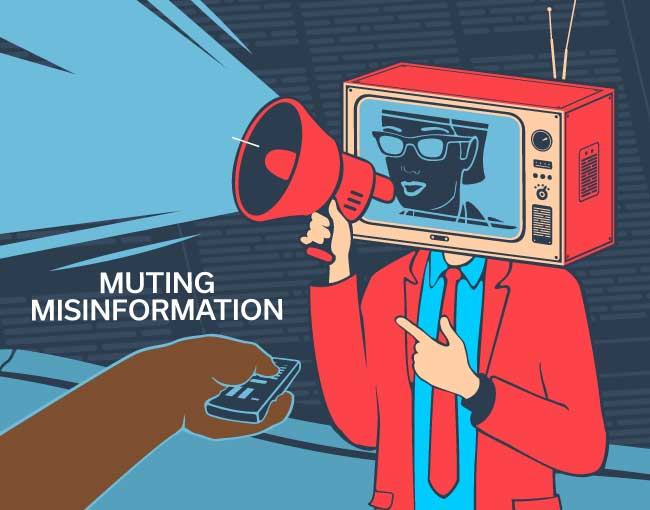
In Part 2 of our series on political misinformation, we explore if social media companies can be relied upon to vet and clean up their content during the 2020 political campaign. READ MORE
(By accessing, browsing or using the pages below, you agree to the Blog Conditions of Use/Disclaimer available under "Links.")

In Part 2 of our series on political misinformation, we explore if social media companies can be relied upon to vet and clean up their content during the 2020 political campaign. READ MORE

In the wake of the coronavirus crisis, a recent report addresses how we receive and understand news and information. READ MORE

As the 2020 presidential campaign ramps up, so does the threat of disinformation on the internet. Julie Smith, professor of media literacy at Webster University, has provided insight on how ordinary news consumers can fight misinformation. READ MORE

The ability to publish almost anything on the internet without censorship is increasingly facing scrutiny from important voices, with some suggesting it may be time to change the law. Internet intermediaries must now strike a balance between censorship and publishing rights to avoid tipping two far in either direction. READ MORE

“Misinformation” was named the word of the year for 2018, and it’s clear we’ve entered a media world where separating truth from falsity can be difficult. Don Corrigan, professor of journalism at Webster University, has provided insight on how ordinary news consumers can fight misinformation. READ MORE

The Stormy Daniels versus President Trump case has clearly changed how we think about facts and truth. The trial court’s analysis, including examining the President’s social media use, has broadened the scope of what is considered opinion in today’s libel cases. READ MORE

Drawing the line between protected speech and unprotected action is one of the oldest issues under the First Amendment. Recent cases involving social media postings are bringing the issue into the 21st century. READ MORE

The rise of disinformation ("fake news") is a social phenomenon affecting millions, if not billions, of people who use the internet. How do we weed out the misleading or inaccurate reports? The solution will be more complicated than we thought. READ MORE

The FTC adapted its endorsement rule to social media in 2009. But several issues continue to puzzle many people. First, what kinds of posts are viewed as endorsements? Second, what circumstances short of direct payments require disclosures? Finally, how can the circumstances of endorsements be disclosed in the limited space of social media? READ MORE

With the Internet, far more communications are published than ever before. And yet the rate of libel suits — claims for damage based on disparaging communications — is much lower than before the Internet. More communications, fewer disparagement claims. It seems counterintuitive. READ MORE

Do you want a comprehensive overview of the data privacy debate in the United States? Well, the Government Accountability Office has written one. READ MORE

Everyone in the publishing/dissemination chain is potentially liable in the bricks-and-mortar world. But through an Internet twist, intermediaries aren’t liable in the Internet world. READ MORE
NOTICE.
Although we would like to hear from you, we cannot represent you until we know that
doing so will not create a conflict of interest. Also, we cannot treat unsolicited
information as confidential. Accordingly, please do not send us any information
about any matter that may involve you until you receive a written statement from
us that we represent you (an ‘engagement letter’).
By clicking the ‘ACCEPT’ button, you agree that we may review any information you transmit to us. You recognize that our review of your information, even if you submitted it in a good faith effort to retain us, and, further, even if you consider it confidential, does not preclude us from representing another client directly adverse to you, even in a matter where that information could and will be used against you. Please click the ‘ACCEPT’ button if you understand and accept the foregoing statement and wish to proceed.